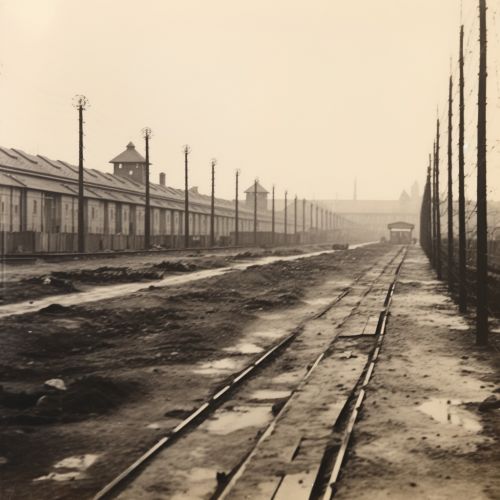The Holocaust
Background
The Holocaust was a systematic, state-sponsored persecution and murder of six million Jews by the Nazi regime and its collaborators. The Nazis, who came to power in Germany in January 1933, believed that Germans were "racially superior" and that the Jews, deemed "inferior," were an alien threat to the so-called German racial community.


Ideological Roots
The ideological roots of the Holocaust can be traced back to the late 19th and early 20th centuries, a period of intense anti-Semitism in Europe. The Nazis' anti-Jewish ideology was built on the belief in the racial superiority of the Aryan race, a concept derived from the pseudo-scientific theories of racial hierarchy that were popular at the time.
Implementation
The implementation of the Holocaust took place in stages. Legislation to remove the Jews from civil society was enacted years before the outbreak of World War II. Concentration camps were established in which inmates were subjected to slave labor until they died of exhaustion or disease.
Concentration and Extermination Camps
During the war, concentration camps for Jews and other "undesirables" spread throughout Europe, with millions of people transported to extermination camps where they were systematically killed in gas chambers. Some of the most notorious of these camps were Auschwitz, Treblinka, and Sobibor.
Victims and Survivors
While Jews were the primary victims of Nazi racism, others targeted for death included the Roma, the disabled, and some of the Slavic peoples. Other groups were persecuted on political, ideological, and behavioral grounds, among them Communists, Socialists, Jehovah's Witnesses, and homosexuals.
Aftermath
In the aftermath of the Holocaust, many of the survivors found shelter in displaced persons camps administered by the Allied powers. Between 1948 and 1951, almost 700,000 Jews emigrated to Israel, including 136,000 Jewish displaced persons from Europe.
Legacy
The legacy of the Holocaust endures in the form of the many individuals and organizations dedicated to keeping the memory of the tragedy alive, ensuring that such an atrocity is never repeated. The establishment of the United Nations in 1945 and the adoption of the Universal Declaration of Human Rights in 1948 were direct responses to the horrors of the Holocaust.
